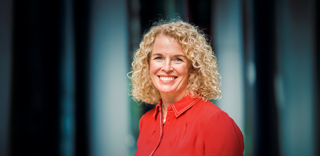With 25% of Gen Z admitting to having never answered their phone and 70% preferring to text rather than call. Ross Olsen, head of sales and partnerships at AI chatbot provider Auto Converse, discusses what this means for sales teams trying to prospect.
A recent poll by Uswitch found that a quarter of Gen Z had never had a conversation on their phone. Never. For those of us who remember being sat on the stairs as a 15-year-old, fighting our parents for control of the landline, that might seem astounding. And for any of you who are lucky enough (ahem) to be responsible for a screenager, you know that getting more than a one-word WhatsApp message is a moment for celebration.
In a world of dm’s and voice notes, where does that leave buying a car? An industry with a long, well-established protocol of ‘prospecting calls’. Gen Z, it seems, would rather dunk their phone into their iced macha latte than answer your sales call.
Almost 70% of those surveyed said their first choice was always to text and they would actively ignore an incoming call. Opting to text back once they knew what the person wanted.
The poll also found that Gen Z tend to keep their phones on ‘Do Not Disturb’ 24/7, to avoid ever having to face the genuine anxiety of answering an actual call.
But wait, I hear you say, Gen Z are only a small percentage of our customers. This may be true (for now), but their Millennial and Gen X parents are the ones buying cars. And this aversion seems to have rubbed off, with these generations just as resistant to an old-fashioned call.
It would seem an imposition to most of us now, to have to actually speak to someone to get an insurance quote, or to pinpoint the hotel with the best pool. We want to access that information for ourselves, at our own pace.
And we see that in our chat data. Whether it's because customers are at work, or because they are actively avoiding talking to a salesperson, our dealers see 33% of their online chats happening out of hours. Telling us that a third of customers could be consciously choosing to wait until the dealership is closed to ask questions.
So why is that? Well, let's be honest, there are still some largely unfair, ingrained perceptions of salespeople. The industry is changing, of course, but it’s a big perception shift to steer. Right now, customers still want to leave that interaction until the last possible moment. Until the point they have enough information to feel empowered to have an equal conversion.
And what is that information? When AutoConverse first entered the live chat arena we, like our customers, assumed that most customer chats would be about cars; ‘Has it got parking sensors?’, ‘Can it be delivered locally?’ We see 1000’s of chats go through our platform every day and yes, there are many of these types of questions, but there are also lots of questions about service, parts and finance.
When we joined the market, the biggest complaint we heard from dealers was that the chat leads they were being sent by chat providers didn’t convert. And now, with the data we have, that’s no surprise to hear.
When customers first hit your website, they do want to chat, they have lots of questions, but they aren’t ready to buy. They are consciously avoiding talking to a salesperson, who they perceive is going to try to sell them something they’re not ready for.
At this point then, being asked for any level of personal information so someone can ‘contact you’, is more likely to result in the customer leaving your site to find the answers they need elsewhere.
And it seems that just having that information available on your website isn’t good enough either. Users are impatient. We regularly see live chat being used as a pseudo search bar by customers. It seems that rather than having to dig around on your website, customers want the specific information they need delivered directly to them, at their (chat) request.
Our data tells us that customers using live chat are generally still at the beginning of their decision making, they are still researching. They have lots of small questions that they might feel embarrassed asking a sale exec.
The most valuable thing a dealership can do is make sure they can answer all those questions online, so the customer doesn’t have to go elsewhere (i.e. a competitor) for the answers.
Then, once fully informed, the customer is far more likely to come back to you. As you have established yourself as a trusted, low-pressure source.
That all sounds great in theory, but, in practice. If these chats aren’t ready to convert, then how can you justify an already stretched sales team spending time on them.
This is where AI comes to the fore. AI technology has advanced way past the clunky entrants of its beginnings. The newest version of ChatGPT so perfectly emulates a human interaction, that it would be almost impossible to guess it wasn’t a person at the other end of the chat box.
Unlike humans however, AI doesn’t need a lunchbreak or a holiday (remember the 33% out of hours?) and it never has a bad day. It can be programmed to exactly emulate your business’s tone of voice consistently, until the customer is ready to be passed on to the team on the ground.
So, does this mark the end of the sales call? No, not necessarily, but it does mean that call must be invited and expected. And it is likely that call will have been preceded by a long trail of customer-initiated text chats, on their terms.
In the words of one respondent:
‘I was not around during the 90s, I have never answered a phone call in my life I would literally rather rob a bank’
Well, I suppose I’m off to get my orange pyjamas then….
Ross Olsen is head of sales and partnerships at AutoConverse



















Login to comment
Comments
No comments have been made yet.